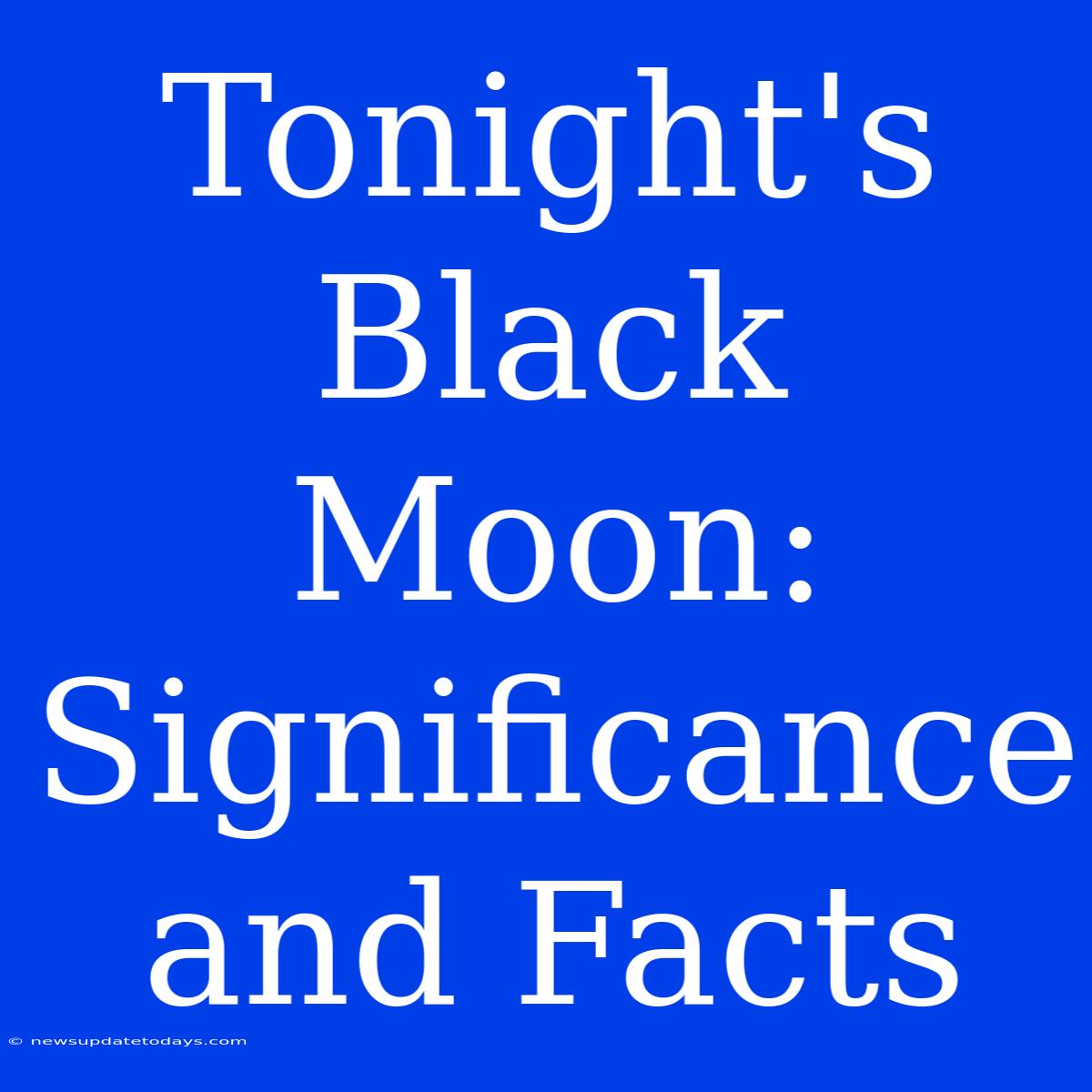Tonight's Black Moon: Significance and Unveiling the Facts
Tonight's sky holds a celestial mystery: a Black Moon. This rare event, shrouded in both mystique and scientific understanding, sparks curiosity and prompts many questions. This article delves into the significance and fascinating facts surrounding tonight's Black Moon, separating myth from reality.
What is a Black Moon?
Contrary to its name, a Black Moon isn't a dark, ominous celestial body. It's actually a less frequent occurrence than a Blue Moon. There are two definitions:
-
Definition 1: The second new moon in a calendar month. This is the more common understanding of a Black Moon. Since the lunar cycle is roughly 29.5 days, it's possible for a month to have two new moons. The second one is then termed a Black Moon.
-
Definition 2: The absence of a new moon in a calendar month. This definition is less widely used but still relevant. Some months, due to the lunar cycle's timing, simply don't have a new moon.
Tonight's Black Moon: Significance and its Impact
Tonight's Black Moon, depending on your location and the definition used, might hold different significance. It's important to note that from a purely scientific perspective, a Black Moon has no observable direct impact on Earth. There will be no unusual gravitational pulls or atmospheric changes.
However, the rarity of the event makes it a significant moment for:
-
Stargazers and Astrophotographers: The absence of a visible moon creates ideal conditions for observing faint celestial objects, making it a fantastic opportunity for night sky enthusiasts.
-
Spiritual and Cultural Interpretations: Throughout history, lunar cycles have held significant meaning in various cultures and spiritual practices. A Black Moon, as an uncommon lunar event, might be interpreted symbolically in these contexts. (Note: We will not delve into specific religious or spiritual interpretations in this scientific article. Consult reputable sources within your chosen spiritual tradition for further information.)
Facts about Black Moons:
-
Infrequency: Black Moons (using definition 1) are far less frequent than Blue Moons.
-
Visibility: Unlike a full moon, a Black Moon is invisible to the naked eye as it's a new moon.
-
Regional Variations: The timing of a Black Moon varies depending on geographical location and time zones.
-
No Scientific Impact: As mentioned earlier, there's no scientifically proven influence of a Black Moon on weather patterns, tides, or human behavior.
Debunking Myths and Misconceptions:
Many myths and misconceptions surround Black Moons, often fueled by astrological beliefs. It's crucial to distinguish between scientifically verifiable facts and beliefs rooted in interpretation. Remember, a Black Moon is a purely astronomical phenomenon; its significance lies primarily in its rarity and the observational opportunities it provides.
Observing Tonight's Black Moon:
While you won't see a Black Moon visually, take advantage of the exceptionally dark night sky to explore the wonders of the cosmos. Utilize binoculars or a telescope to observe distant stars and galaxies that are usually overshadowed by moonlight.
Conclusion:
Tonight's Black Moon presents a unique celestial event, offering a blend of scientific understanding and cultural interpretations. While it lacks direct physical impact, it's a reminder of the captivating mysteries and the ongoing rhythm of the cosmos. So, enjoy the dark, clear night sky and let the wonder of a Black Moon spark your curiosity!

